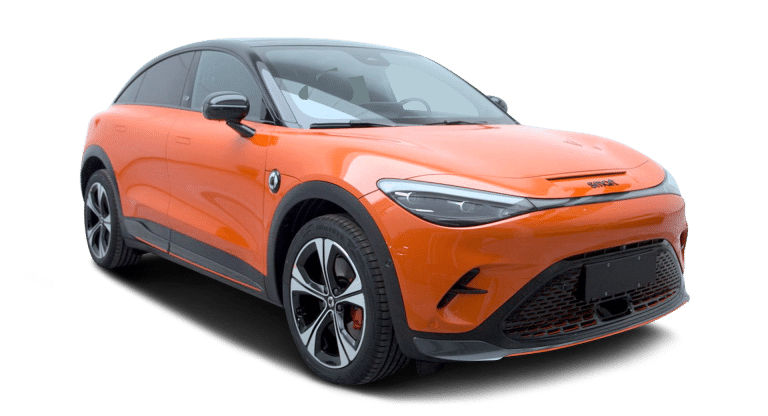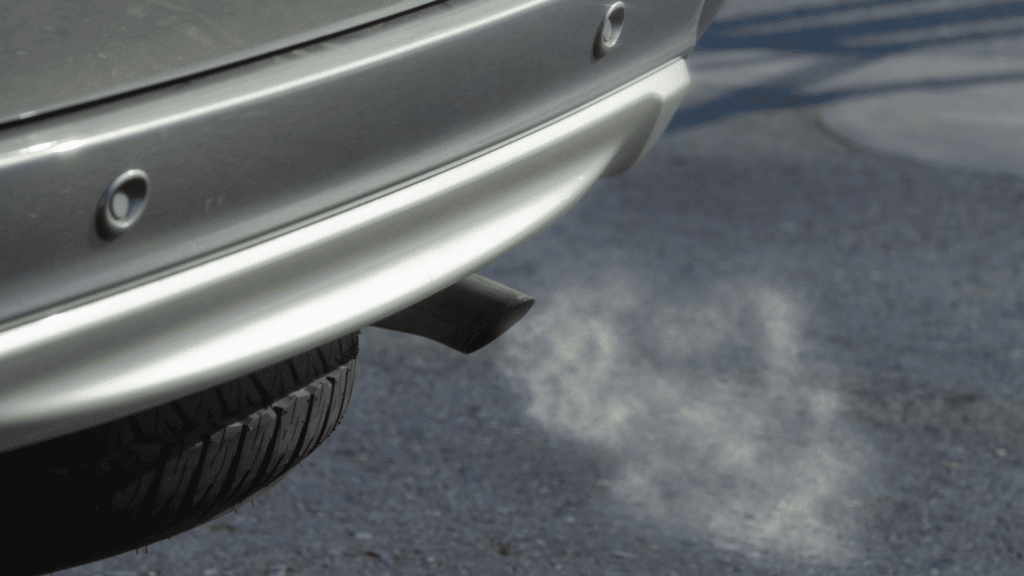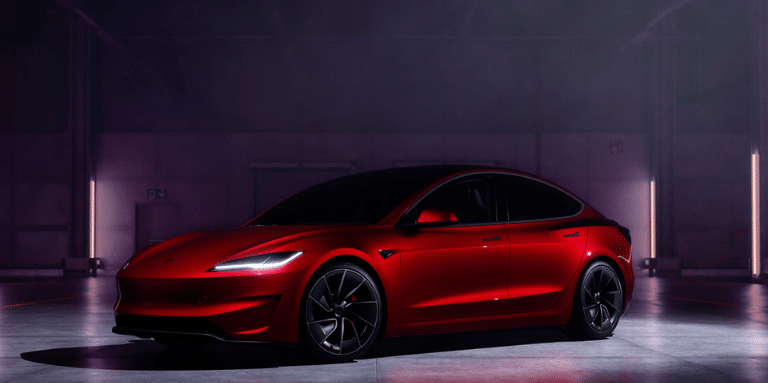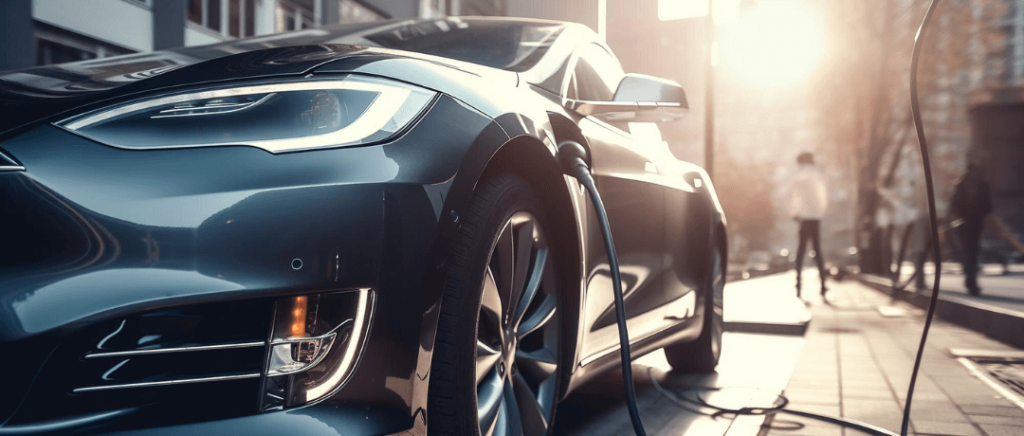The end of production and sales of combustion-powered vehicles
The European Parliament's Environment Committee is proposing to bring forward the end date for the production and sale of combustion-powered cars in Europe to 2035. It was the chairman of the European Parliament's Environment Committee, Pascal Canfin, who announced the results of the vote on Twitter in May 2022: "46 votes in favor, 40 against and 2 abstentions".
After this initial vote, the European Union presented the climate plan to the European Parliament, and the verdict was favorable. The final verdict came on March 27, 2023, when the European Union approved the plan's entry into force.
This text states that motorists will no longer have to use diesel, petrol and hybrid vehicles, which emit CO2 molecules.
Europe has also put in place the so-called "Fix For 55", a package of 12 legislative proposals to accelerate the fight against climate change. Under this scheme, Europe aims to reduce carbon emissions in the European Union by at least 55% by 2030, and achieve 100% carbon neutrality by 2035.
But who will be most affected by the end of the road for combustion-powered vehicles?
The agreement on the transition to 100% zero-emission cars sold from 2035 was definitively validated today. It remains unchanged despite the government's attempt 🇩🇪de to weaken it. We are thus opening a new page for the climate and for our industry https://t.co/ZpHUgOo2zE
- Pascal Canfin (@pcanfin) March 28, 2023
The end of the combustion-powered vehicle for automakers
In the front line, all automakers are affected by these changes, and must adapt to the European market as quickly as possible.
While the Tesla and Aiways brands have already opted for clean vehicles, some traditional manufacturers have already set a deadline for the electrification of their fleets. The latter are already prepared for a 100% electric future:
- Renault At a conference held on January 13, 2022, Losange CEO Luca de Meo stated that all the brand's vehicles will go 100% electric by 2030. New electric models can therefore be expected in the coming years. What's more, Renault wants to create the Renault-Nissan Alliance to create a single brand. The aim of this alliance is to accelerate the ecological transition. The official decision on this alliance will take place in July 2022.
- Volkswagen Between 2030 and 2035, the German brand will also cease production of combustion-powered vehicles in Europe, selling 70% electric vehicles.
- Porsche: the end of combustion-powered vehicles is nigh for the Porsche brand, which has set itself the target of selling 80% new clean vehicles by 2030.
- Nissan: by 2025, Nissan will also be one of the manufacturers converting to 100% electric vehicles. The Japanese automaker's objective is to build nine electrified cars in order to achieve a sufficient number of electric vehicle sales to compensate for the phasing out of internal combustion vehicles. Admittedly, the Japanese company is currently a little behind its American and European rivals, but the timeframe the manufacturer has set itself will rapidly narrow this gap.
- BMW: despite numerous electric models such as the i4 M50, the iX3 and the i4 eDrive40, the German automaker is not in favor of this abrupt ban on combustion-powered models. However, in two decades' time, the brand with the propeller could well see itself abandoning its diesel range entirely, followed a decade later by the petrol engine range. In the meantime, BMW plans to reduce its production of combustion-powered vehicles by 50% this year.
- Honda: in order to focus on its hybrid and electric range, Honda will no longer offer diesel vehicles for sale in Europe from 2021. "All new models will be diesel-free from now on," said Dave Hodgetts in an interview with Automotive News. The brand is off to a good start so far, first with the release of the Honda Urban Ev city car in 2019, then very quickly followed by the new HR V launched a few months later. Optimistically, the Japanese automaker hopes that electric vehicles will account for 2/3 of automotive sales by 2025.
- Ford Ford: while the Ford collection is not yet entirely electric, it does support the ban on combustion-powered vehicles in 2035. The American automaker is making every effort to move rapidly towards this goal. Ford plans to invest $22 billion between now and 2030 to offer only electric vehicles.
Known as Europe's leading manufacturer of light commercial vehicles, the company is keen to electrify all its models, or create hybrids, which will account for two-thirds of future sales. The advantage is that electric vehicles will be less expensive to build than combustion-powered vehicles, and more expensive to sell.
- Audi: as for the Audi brand, boss Markus Duesmann claims that combustion-powered models will disappear from 2033. With his future strategic plan "Vorsprung 2030", the Audi boss envisages a switch to 100% electric vehicles by 2035.
- Peugeot: the lion brand has also taken steps to reduce the manufacture of fuel-powered vehicles. Indeed, Jean Philippe Imparato, Peugeot's current boss, spoke at the Brussels Motor Show. He himself is confident in electric cars, and is ready to eliminate combustion engines from his collection by 2030. "If you want to reduce CO2 emissions by 2030, then you have to accept the fact that the non-hybrid combustion engine segment will be dead by then. Of course, this evolution will be faster in certain countries, depending on local policies, but also in certain segments, city cars for example."
It's also important to point out that this new law poses the risk of job losses. Why? Because an electric vehicle will need less maintenance, and that means less manpower and fewer parts. This leaves equipment manufacturers and automakers worried about job losses.
Discover several models of electric vehicles available for quick delivery!
Motorists will no longer be able to buy combustion-powered vehicles in 2035
To this day, electric vehicles are taking up more and more space on our roads. Indeed, the number of electric vehicles continues to rise, with over 700,000 registrations to date. Despite this figure, which points to real market potential, many French people are reluctant to make the switch, not least because of the high price.
In response to this problem, the government continues to offer national and local subsidies to reduce the cost of purchasing an electric vehicle. These subsidies are available to individuals, professionals and businesses alike. To give an example, the State has already set up :
- the ecological bonus
- conversion bonus
To find out more, you can read this article, which explains the national and local subsidies for the purchase of an electric vehicle.
Despite this, not everyone is unanimous about these various systems.
The government
By encouraging the French to make their ecological transition, this is pushing the government to speed up the installation of charging points for electric vehicles. In fact, in October 2020, the Ministry of Transport and Ecology launched the "Plan objectif 100,000 bornes". Despite a 30% increase, during the year 2021, the goal was not reached.
To accelerate the deployment of charging solutions, the government is renewing its target of reaching 100,000 charging points open to all by 2022, and envisages 7 million private and public charging points by 2030.
To this end, the ADVENIR program, which was due to end in 2023, has been extended to the end of 2025, according to the decree dated December 10, 2021. With this extension, the ADVENIR program has earmarked an additional budget of 200 million euros to develop nearly 65,000 charging points throughout France.
To achieve this new objective, ADVENIR is planning charging solutions for various beneficiaries, including :
- The installation of 22,500 recharging points in public parking lots
- Installation of 20,000 community charging points
- 13,500 charging points for heavy-duty vehicles (passenger and goods vehicles)
- For automotive service professionals, an installation of 8,000 charging points.
The ZFE-m: combating the most polluting combustion-powered cars
When we talk about Crit'Air stickers, we're also talking about ZFE-m. Low-emission zones (ZFE-m) are defined urban zones that limit or ban the circulation of the most polluting cars. ZFE-ms are designed to protect the inhabitants of these polluted areas.
The transport sector emits 31% of greenhouse gases, making it the most polluting sector. They therefore contribute to reducing CO2 emissions from road traffic.
These ZFEs require companies to change their fleets for less polluting cars. Companies such as La Poste have chosen to take the lead in electrifying their fleets. fleet.
The aim is to encourage the circulation of the cleanest cars. Barbara Pompili, the French Minister for Ecological Transition, and Jean-Bernard Djebarri, Minister Delegate for Transport, have come up with a solution to reinforce the ZFE-m (Zones à Faibles Émissions mobilité) scheme. To drive in cities that have set up a ZFE-mit is essential to have a Crit'Air sticker on your windshield.
Today, 11 cities have joined the EPZ movement:
- Paris and part of the Greater Paris metropolitan area
- Greater Lyon Metropolis
- Grenoble Alpes Métropole
- Métropole d'Aix-Marseille-Provence (September 2022)
- Nice-Côte d'Azur Metropolis
- Toulon-Provence-Méditerranée Metropolis
- Toulouse Métropole
- Montpellier-Méditerranée Métropole
- Eurométropole de Strasbourg (deferred until 2022)
- Métropole Européenne de Lille (deferred until 2022)
- Metropole Rouen-Normandie
Other EPZs are currently being studied:
- ZFE CA de la Rochelle
- ZFE CA du Grand Annecy
- ZFE CA Valence Romans Agglo
- ZFE CC Cluses-Arve et Montagnes
- ZFE CC de la Vallée de Chamonix-Mont-Blanc
- ZFE CC Faucigny-Glières
- ZFE CC Pays du Mont-Blanc
- ZFE Clermont Auvergne Métropole
- ZFE CU d'Arras
- ZFE CU du Grand Reims
- ZFE Greater Nancy Metropolis
- ZFE Saint-Etienne Métropole
By 2025the 43 metropolises with more than 150,000 inhabitants will also have to join the ZFE-mscheme, in anticipation of stricter European regulations.
Low-emission" hybrid vehicles
Faced with this harsh reality, other automakers are investing are investing in new technologies to fill the gap left by combustion engines.
More and more hybrids are appearing on the market.
Hybrids are less polluting than diesel and petrol vehicles, but still emit a lot of CO2. In fact, hybrids are equipped with two engines, one thermal, the other electric, weighing between 200 and 300 kilos, but it turns out that the weight of these engines will make the vehicle heavier. The result is higher CO2 emissions, and higher engine power requirements, which in turn generate more pollution.
Of course, hybrid vehicles comply with legislation aimed at the transition to electric vehicles, but are they a good choice for the environment?
In the interests of reducing CO2 emissions, it's actually preferable to go straight for an electric vehicle. In fact, hybrid engines generate more pollution than you might imagine. What's more, the law prohibiting the sale of combustion-powered vehicles also includes hybrids.
Want to go electric?
Beev offers multi-brand 100% electric vehicles at the best prices, as well as recharging solutions.
The end of combustion-powered cars: don't wait until 2035!
In 2035, gasoline, diesel and hybrid vehicles will be banned from circulation and from purchase! Whether you're an individual or a company, plan ahead and anticipate these measures. Discover the key dates that will have a considerable impact on the reduction of CO2 emissions and the emergence of electric cars in the daily lives of motorists and manufacturers.
In the face of these changes, are there any anti-personnel solutions?
With the end of internal combustion vehicles set for 2035, it's essential to think about the various alternatives and solutions to prepare for the energy transition.
There are several ways to do this:
Retrofitting your old combustion-powered vehicle
Did you know that it's now possible to convert your old internal combustion vehicle (petrol or diesel) to electric power? This is known as retrofitting. Since 2020, this transformation has been carried out by professionals specialized in this field, where the aim will be to dismantle the vehicle's combustion system and replace it with an electric motor and battery, without changing the vehicle. Retrofitting an old vehicle gives access to many advantages, including:
- Price: buying a new electric vehicle costs at least €20,000. Retrofitting, on the other hand, is much cheaper, especially as the conversion bonus provides financial support. This can be either €2,500 if income is below €18,000, or €5,000 if income is over €18,000.
- You keep your vehicle: as you'll have understood, to carry out this operation, you won't need to change your vehicle to go electric. In this way, you give your vehicle a second life.
- Ecological advantage: retrofitting your vehicle is also synonymous with a commitment to reducing its carbon footprint, both on the road and during manufacture.
Rent electric vehicles from Beev
To get the most out of an electric vehicle, you can opt for rental, or more commonly known as leasing. Beev offers individuals, companies and professionals the opportunity to lease clean vehicles. To lease a vehicle, you can choose between 3 financing options: LLD, LMD and LOA.
Depending on your needs and objectives, the length of your contract will vary according to the leasing option you choose.
- LLD: LLD (Location Longue Durée) is a financing method that allows you to lease 100% electric vehicles for periods ranging from 24 to 60 months.
- LMD: Beev's medium-term rental allows you to rent a clean vehicle for a shorter period of one to 24 months. This type of rental can be interesting for urgent needs, or if you simply want to try out an electric vehicle.
- LOA: Leasing with an option to purchase allows you to lease a vehicle for a limited period, with the possibility of buying it at the end of the contract. In this case, if the lessee so wishes, he or she becomes the owner.
Regardless of the applicant's profile, there are a number of advantages to be gained:
- Control over your finances: with fixed monthly payments, it's easier to budget. You'll enjoy your vehicle with peace of mind.
- At the end of the contract, it is possible to benefit from electric vehicles with the latest technological advances.
To find out more, don't hesitate to contact us.
Finally, the plan to put an end to combustion-powered vehicles seems well-defined, and seems to be bearing fruit. To complete this major step forward, the government has voted to implement other complementary restrictions aimed at reducing pollution, such as the end of coal production in France in 2022, and the overall reduction of fossil fuel consumption to less than 40% by 2030.





